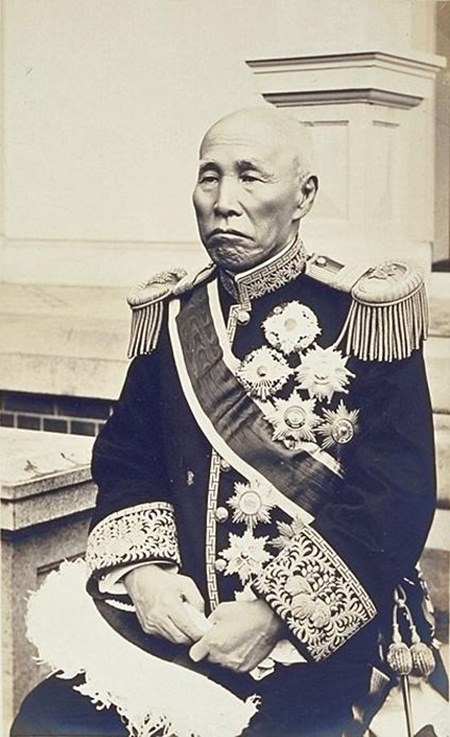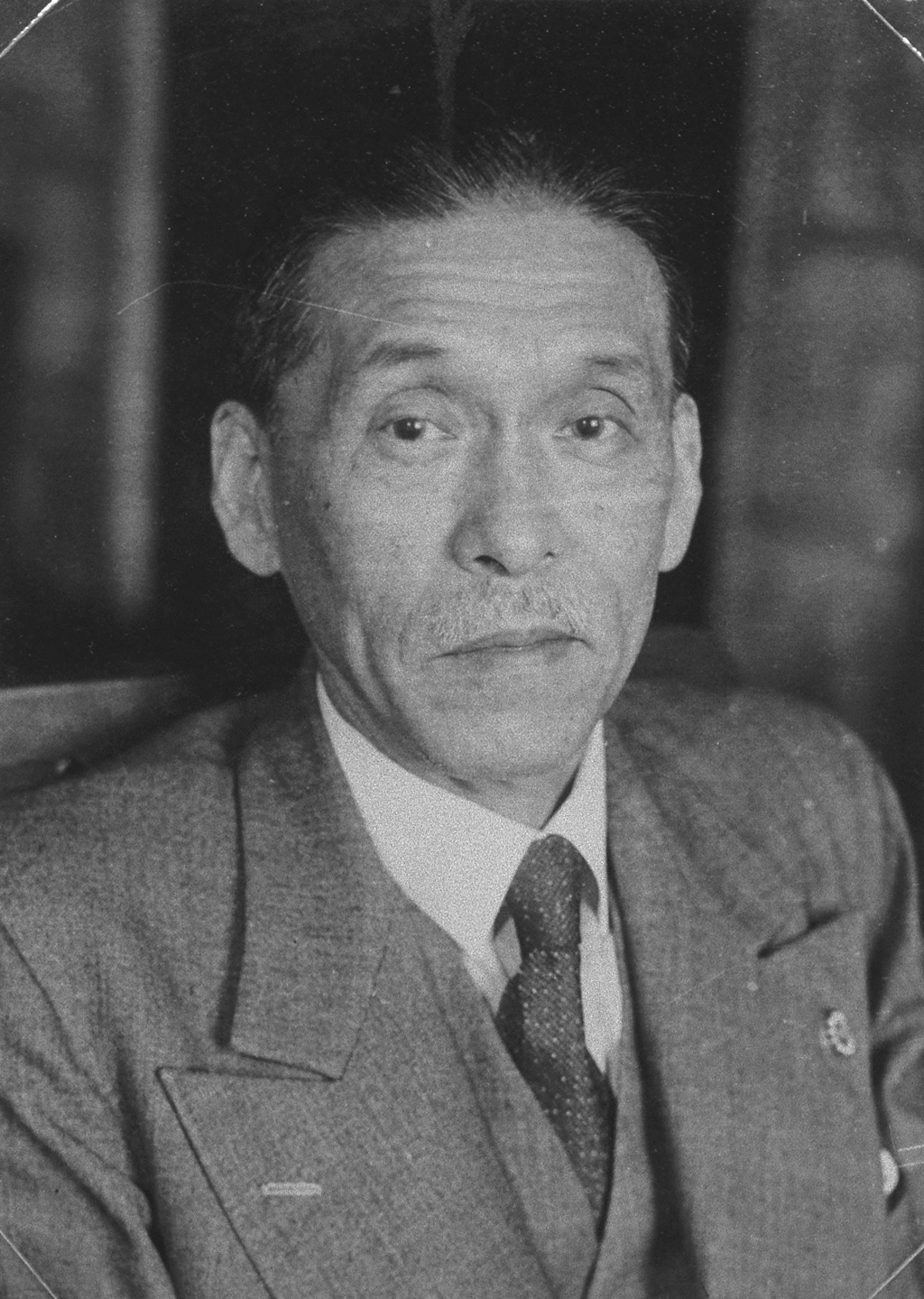|
List Of Waseda University People
This is a list of notable alumni, faculty, and students, from Waseda University. Those individuals who qualify for multiple categories have been placed under the section for which they are best known. Prime ministers * Tanzan Ishibashi (1956–1957) * Noboru Takeshita (1987–1989) * Toshiki Kaifu (1989–1991) * Keizō Obuchi (1998–2000) * Mikio Aoki (Acting: 2000-2000) * Yoshirō Mori (2000–2001) * Yasuo Fukuda (2007–2008) * Yoshihiko Noda (2011–2012) * Fumio Kishida (2021–2024) Politics Diplomats * Chiune Sugihara * Tsuneo Koizumi * Katsuhiko Oku – rugby player and diplomat, promoted posthumously to ambassador Business leaders Academics Authors Journalists * :ja:田原総一朗, Soichiro Tawara * Yoh Henmi * Satoshi Kamata * Chang Deok-soo Performing arts Scientists * Shingo Futamura - rubber industry scientist Sports Baseball Figure skating * Shizuka Arakawa – Figure skating at the 2006 Winter Olympics – Ladies' singles, 2006 Winter Olympics go ... [...More Info...] [...Related Items...] OR: [Wikipedia] [Google] [Baidu] |
Waseda University
Waseda University (Japanese: ), abbreviated as or , is a private university, private research university in Shinjuku, Tokyo. Founded in 1882 as the Tōkyō Professional School by Ōkuma Shigenobu, the fifth Prime Minister of Japan, prime minister of Japan, the school was formally renamed Waseda University in 1902. Waseda is organized into 36 departments: 13 undergraduate schools and 23 graduate schools. As of 2023, there are 38,776 undergraduate students and 8,490 graduate students. In addition to a central campus in Shinjuku (Waseda Campus and Nishiwaseda Campus), the university operates campuses in Chūō, Tokyo, Chūō, Nishitōkyō, Tokyo, Nishitōkyō, Tokorozawa, Saitama, Tokorozawa, Honjō, Saitama, Honjō, and Kitakyūshū, Fukuoka, Kitakyūshū. Waseda also operates 21 research institutes at its main Shinjuku campus. The university is selected as one of the Top Type (Type A) universities under Ministry of Education, Culture, Sports, Science and Technology, MEXT's Top Gl ... [...More Info...] [...Related Items...] OR: [Wikipedia] [Google] [Baidu] |
Li Dazhao
Li Dazhao or Li Ta-chao (October 29, 1889 – April 28, 1927) was a Chinese intellectual and revolutionary who participated in the New Culture Movement in the early years of the Republic of China, established in 1912. He co-founded the Chinese Communist Party (CCP) with Chen Duxiu in July 1921. He helped build a united front between the CCP and Sun Yat-sen's Nationalist Party (KMT) in early 1924. During the Northern Expedition, Li was arrested and executed by warlord Zhang Zuolin in Beijing in April 1927. Biography Early life Li was born into a peasant family in Laoting County, Hebei (previously Zhili) province in 1889. His father died a few months before he was born, and his mother died when he was a baby. When he was ten, Li married Zhao Renlan, who was nearly six years older; Li's foster grandfather arranged the marriage for Li's protection. He received his traditional education in three village schools in Laoting County for a decade. He started his modern education at ... [...More Info...] [...Related Items...] OR: [Wikipedia] [Google] [Baidu] |
Fukushiro Nukaga
is a Japanese politician who is serving as the Speaker of the House of Representatives (Japan), Speaker of the House of Representatives since October 2023. A member of the Liberal Democratic Party (Japan), Liberal Democratic Party, he has been a member of the House of Representatives of Japan, House of Representatives since 1983 and represents Ibaraki Prefecture, Ibaraki's 2nd district.CV at government website He was previously the Minister of Finance (Japan), Minister of Finance from 2007 to 2008,"Abe Replaces Finance Minister; Aso to Rebuild LDP" Bloomberg.com, 27 August 2007 and served twice ... [...More Info...] [...Related Items...] OR: [Wikipedia] [Google] [Baidu] |
Taro Hatoyama
Taro (; ''Colocasia esculenta'') is a root vegetable. It is the most widely cultivated species of several plants in the family Araceae that are used as vegetables for their corms, leaves, stems and petioles. Taro corms are a food staple in African, Oceanic, East Asian, Southeast Asian and South Asian cultures (similar to yams). Taro is believed to be one of the earliest cultivated plants. Common names The English term ''taro'' was borrowed from the Māori language when Captain Cook first observed ''Colocasia'' plantations in New Zealand in 1769. The form ''taro'' or ''talo'' is widespread among Polynesian languages:*''talo'': taro (''Colocasia esculenta'') – entry in the ''Polynesian Lexicon Project Online'' (Pollex). in [...More Info...] [...Related Items...] OR: [Wikipedia] [Google] [Baidu] |
Hirohide Ishida
was a Japanese politician who served in the cabinets of multiple conservative administrations. In the 1980s, it was revealed that the KGB considered him to be an agent of the Soviet Union. Early life Born in Noshiro, Akita, Ishida entered Waseda University, where he majored in political science and economics. After graduating in 1939, he joined '' Chugai Shōgyō Shimpo'' (later renamed ''Nihon Keizai Shimbun'') and was appointed as its chief correspondent in Shanghai. Political career In 1947, Ishida was elected to the House of Representatives. He joined the Liberal Democratic Party (LDP) in 1955, serving as Chief Cabinet Secretary under two prime ministers, Tanzan Ishibashi and Nobusuke Kishi, from 23 December 1956 to 10 July 1957. Widely viewed as a friend and proponent of labor unions (an unusual stance in the pro-business LDP), he was also appointed to five terms as minister of labor under four different prime ministers, in addition to one term as minister of transport. ... [...More Info...] [...Related Items...] OR: [Wikipedia] [Google] [Baidu] |
Bukichi Miki
was a Japanese politician. He was a close friend and ally of Ichiro Hatoyama, and was the key figure in carrying out the "conservative merger" that resulted in the formation of the Liberal Democratic Party. Despite being a powerful conservative politician in the Taishō and Shōwa eras, Miki remarkably never held any cabinet post. He still has a high reputation as the archetype of a behind-the-scenes power broker, and at the zenith of their power there were times when both Kanemaru Shin and Hiromu Nonaka were openly complimented by Prime Minister Yasuhiro Nakasone for having "surpassed Bukichi Miki." Miki's nicknames included "the heckling general," "the wily schemer," and "the great tanuki of Japanese politics." Life before politics He was born in Takamatsu, then in Ehime Prefecture but now in Kagawa Prefecture, as the first son of Komon Miki, an antiques dealer. His family was not related to that of Takeo Miki. In his second year at Takamatsu Secondary, now Kagawa Pr ... [...More Info...] [...Related Items...] OR: [Wikipedia] [Google] [Baidu] |
Deputy Prime Minister Of Japan
The is the second highest-ranking officer of the executive branch of the government of Japan after the prime minister of Japan, and ranks first in the line of succession to the prime minister. The office of the deputy prime minister is not a permanent position, and exists only at the discretion of the prime minister. The deputy prime minister is appointed by the prime minister and must be a member of the cabinet, for instance Taro Aso served as Minister of Finance concurrently. Should the prime minister be incapacitated or resign, the deputy prime minister does not automatically succeed to the position, but instead exercises the duties of the prime minister until the National Diet , transcription_name = ''Kokkai'' , legislature = 215th Session of the National Diet , coa_pic = Flag of Japan.svg , house_type = Bicameral , houses = , foundation=29 November 1890(), leader1_type ... elects a successor. Tarō Asō was the longest-s ... [...More Info...] [...Related Items...] OR: [Wikipedia] [Google] [Baidu] |
Ichirō Kōno
was a Japanese politician during the Post-war, postwar period who served as Deputy Prime Minister of Japan, Deputy Prime Minister and a member of the National Diet. As Deputy Prime Minister, he was in charge of the 1964 Summer Olympics, 1964 Tokyo Olympics. In the 1950s and 1960s, he was the head of the powerful "Kōno Faction" within the ruling Liberal Democratic Party (Japan), Liberal Democratic Party. Kōno aspired to become prime minister, but although he held a large number of important party and cabinet positions, reflecting his power and influence, he was not able to rise to the premiership before his death in 1965. Elected to represent a portion of Kanagawa Prefecture, Kōno also exercised a powerful influence over his home prefecture, to such an extent that Kanagawa came to be nicknamed "Kōno Kingdom" (河野王国, ''Kōno ōkoku).'' Early life Kōno was born in 1898 to a wealthy farming family (''gōnō'') in Toyokawa village, Ashigarashimo District, Kanagawa, Ashi ... [...More Info...] [...Related Items...] OR: [Wikipedia] [Google] [Baidu] |
Hidehiko Noda
Hidehiko (written: 秀彦 or 英彦) is a masculine Japanese given name. Notable people with the name include: *, Japanese musician and songwriter *, Japanese jazz saxophonist and bandleader *, Japanese footballer and manager *, Japanese high jumper *, Japanese boxer *, Japanese mathematician *, Japanese judoka and mixed martial artist *, Japanese clothing designer *, Japanese politician {{given name Japanese masculine given names Masculine given names ... [...More Info...] [...Related Items...] OR: [Wikipedia] [Google] [Baidu] |
Peng Pai
Peng Pai ( zh, c=彭湃, p=Péng Pài, w=P'êng2 P'ai4; October 22, 1896 – August 30, 1929) was a pioneer of the Chinese agrarian movement and a leading revolutionary in the Chinese Communist Party (CCP) during its early years.In the Preface, the author called Peng Pai "the father of Chinese rural communism". He was born in Haifeng, Guangdong Province, Qing dynasty, China. Peng Pai was one of the few Chinese intellectuals who were aware in the early 1920s that peasantry and land issues caused the most critical problems for Chinese society. He believed that the success of any revolution in China must depend on the peasants as its base foundation. After his death, Peng was praised by Mao Zedong as "the king of peasant movement". Early life Peng Pai was born on October 22, 1896, in Haifeng, Guangdong province. His father Peng Xin (), was part of an elite Hokkien, Hokkien-speaking landlord and merchant family that rented land to more than 1,500 tenant farmers. His mother, Zhou Fe ... [...More Info...] [...Related Items...] OR: [Wikipedia] [Google] [Baidu] |







